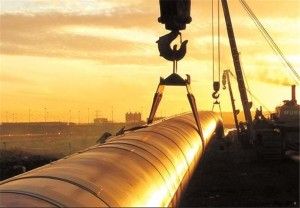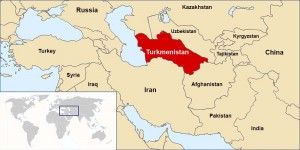The escalation of Iran–Turkmenistan gas dispute: Will the battle begin?
 On 30 January, Iran announced the intention to file a claim with the ICC International Court of Arbitration over the quality and price of Turkmenistan gas.
On 30 January, Iran announced the intention to file a claim with the ICC International Court of Arbitration over the quality and price of Turkmenistan gas.
The gas dispute between Iran and Turkmenistan broke out in January 2017, when Turkmenistan stopped its gas exports to Iran.
online pharmacy https://www.arborvita.com/wp-content/themes/spacious/inc/new/antabuse.html no prescription drugstore
Turkmengaz, the national gas company of Turkmenistan, claimed that Iran owed $1.5 billion over the gas exports. Iran disagreed upon the debt’s amount and proposed taking the matter to arbitration after several rounds of unsuccessful negotiations.
online pharmacy https://www.arborvita.com/wp-content/themes/spacious/inc/new/zoloft.html no prescription drugstore
Why does a gas giant import gas from another gas giant?
Iran–Turkmenistan gas dispute looks interesting, taking into account that both Iran and Turkmenistan hold top positions among the countries with the biggest proven natural gas reserves. In particular, Iran ranks second after Russia, and Turkmenistan ranks sixth after Saudi Arabia. Both states export their natural gas reserves abroad. Iran exports gas to Armenia, Azerbaijan, and Turkey, while Turkmenistan has previously exported gas to Russia and currently sells it to China.
At the same time, even the biggest gas exporters do not hesitate to buy gas from the neighbouring countries out of geographic proximity, in order to cut supply costs. For instance, Russia’s Gazprom has bought Turkmen gas for years to arrange cheap and efficient supplies into its southern regions. So did Iran: despite the abundance of gas fields in the south, Iran has imported Turkmen gas since 1997 to provide gas supplies into its northern regions. Hence, gas trade between the neighbouring gas-exporting countries has frequently taken place.
However, gas trade between Iran and Turkmenistan have experienced turbulence over the years. First, Turkmenistan has occasionally raised gas prices for Iran during several winters. For instance, during the cold winter of 2007 – 2008, Turkmenistan demanded a nine-fold price increase (from $40 to $360 per cubic meter), and Iran eventually accepted the higher price for a short period. Second, Iran has not always paid for gas by cash transfers due to the international sanctions and supplied goods and services instead.
Apart from that, Ashgabat badly needed cash after the loss of Gazprom as its client in 2016. Taking into account that gas revenues constitute an important source of income for Turkmenistan’s budget, its Government has eagerly involved itself in a large dispute over the debts.
The dispute’s escalation
The gas dispute between Iran and Turkmenistan began in late 2016 when Turkmengaz demanded National Iranian Gas Company (NIGC) to pay off the debt between $1.5 and $ 1,8 billion. Apparently, the negotiations did not result in progress on the debt’s settlement, therefore on 1 January 2017 Turkmenistan cut off the gas supply to Iran.
At first, the Iranian side announced its commitment to negotiations but later proposed taking the matter to arbitration. On 5 December 2017, the President of Turkmenistan Gurbanguly Berdymukhammedov instructed Turkmengaz to file a complaint against Iran with the International Court of Arbitration (ICC).
On 30 January 2018, Iran, in its turn, announced that it will file a separate complaint with the ICC over the debt’s size. Iran’s complaint will contain three basic claims: excessive gas pricing, low quality of gas, and cutting off the gas without prior notice. Apart from that, the NIGC underlined that Iran had already paid parts of its debts to Turkmenistan through different methods of payment, including the supplies of goods and services. The company added that the debts had accumulated for years due to the international sanctions against Iran.
Among the strongest point of Iran’s counterclaim has been a clear breach of contract agreement by Turkmengas. In particular, no debts or payments’ delays authorized the Turkmen company to cut natural gas supplies to Iran.
online pharmacy https://www.arborvita.com/wp-content/themes/spacious/inc/new/lexapro.html no prescription drugstore
Consequently, the International Court of Arbitration will have to question both sides on their reliability in international transactions.
Will the battle begin?
Though both sides have given up negotiations, there still exists a possibility of a pre-arbitration settlement. Over the last few months, Iran has increased its gas supply from the central fields to compensate for the loss of Turkmen gas in its northern regions. Though Iran no longer requires Turkmen gas, its diplomacy maintains the importance of preserving regional energy ties. Taken into account Iran’s difficult international position, further escalation of the conflict with neutral Turkmenistan might be avoided.
To conclude, the gas dispute between Iran and Turkmenistan presents a remarkable case for international arbitration. The first party has accumulated debts for gas supply over the years. The second party has allegedly breached its gas supply contract without a prior notice. Therefore, should the parties proceed to arbitration, the court battle might last for years, and none of the parties will enjoy a full victory.












